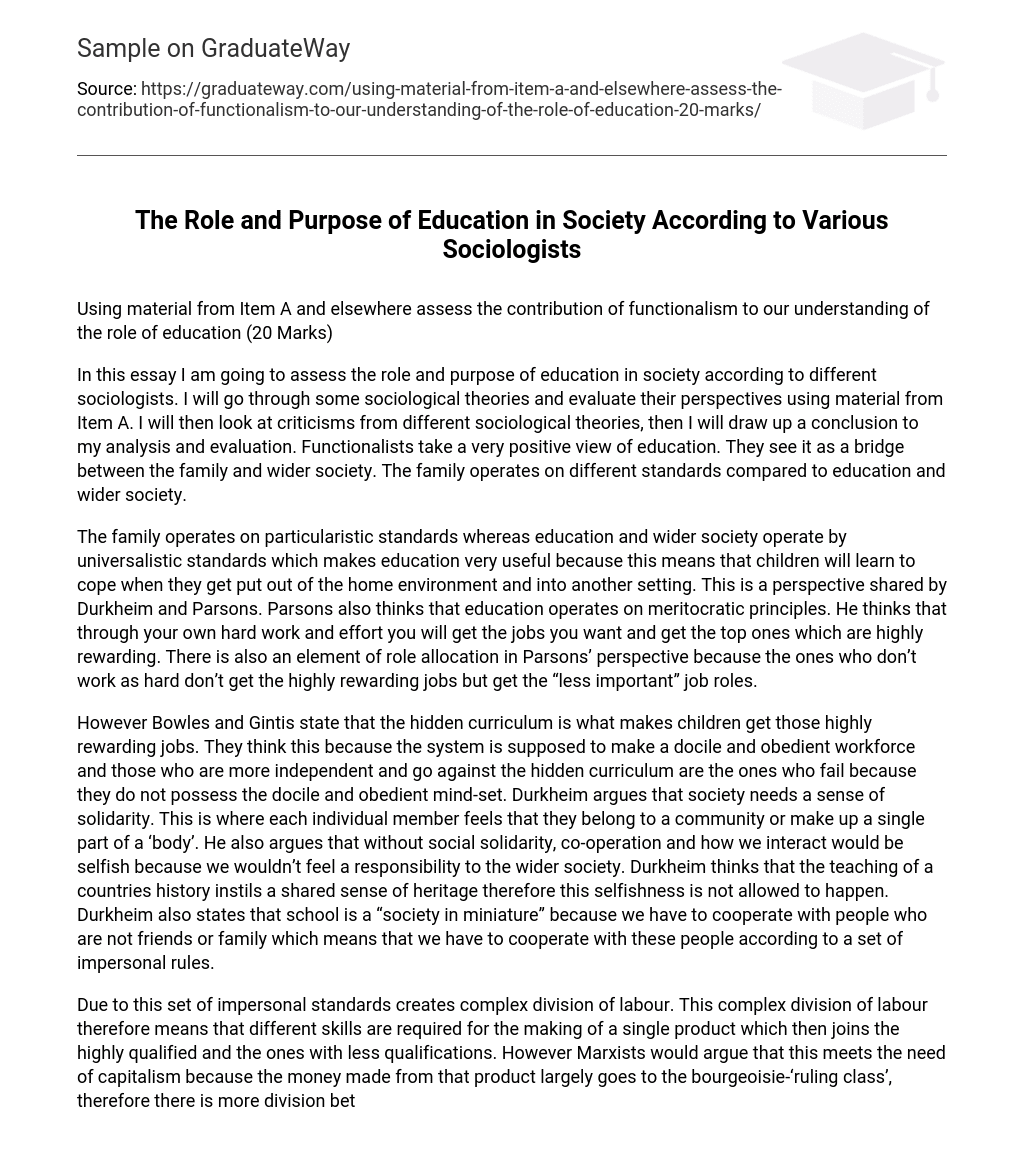Using material from Item A and elsewhere assess the contribution of functionalism to our understanding of the role of education (20 Marks)
In this essay I am going to assess the role and purpose of education in society according to different sociologists. I will go through some sociological theories and evaluate their perspectives using material from Item A. I will then look at criticisms from different sociological theories, then I will draw up a conclusion to my analysis and evaluation. Functionalists take a very positive view of education. They see it as a bridge between the family and wider society. The family operates on different standards compared to education and wider society.
The family operates on particularistic standards whereas education and wider society operate by universalistic standards which makes education very useful because this means that children will learn to cope when they get put out of the home environment and into another setting. This is a perspective shared by Durkheim and Parsons. Parsons also thinks that education operates on meritocratic principles. He thinks that through your own hard work and effort you will get the jobs you want and get the top ones which are highly rewarding. There is also an element of role allocation in Parsons’ perspective because the ones who don’t work as hard don’t get the highly rewarding jobs but get the “less important” job roles.
However Bowles and Gintis state that the hidden curriculum is what makes children get those highly rewarding jobs. They think this because the system is supposed to make a docile and obedient workforce and those who are more independent and go against the hidden curriculum are the ones who fail because they do not possess the docile and obedient mind-set. Durkheim argues that society needs a sense of solidarity. This is where each individual member feels that they belong to a community or make up a single part of a ‘body’. He also argues that without social solidarity, co-operation and how we interact would be selfish because we wouldn’t feel a responsibility to the wider society. Durkheim thinks that the teaching of a countries history instils a shared sense of heritage therefore this selfishness is not allowed to happen. Durkheim also states that school is a “society in miniature” because we have to cooperate with people who are not friends or family which means that we have to cooperate with these people according to a set of impersonal rules.
Due to this set of impersonal standards creates complex division of labour. This complex division of labour therefore means that different skills are required for the making of a single product which then joins the highly qualified and the ones with less qualifications. However Marxists would argue that this meets the need of capitalism because the money made from that product largely goes to the bourgeoisie-‘ruling class’, therefore there is more division between the upper/middle class and the lower class. Davis and Moore think that education “sorts and sifts” the ones who will get.





